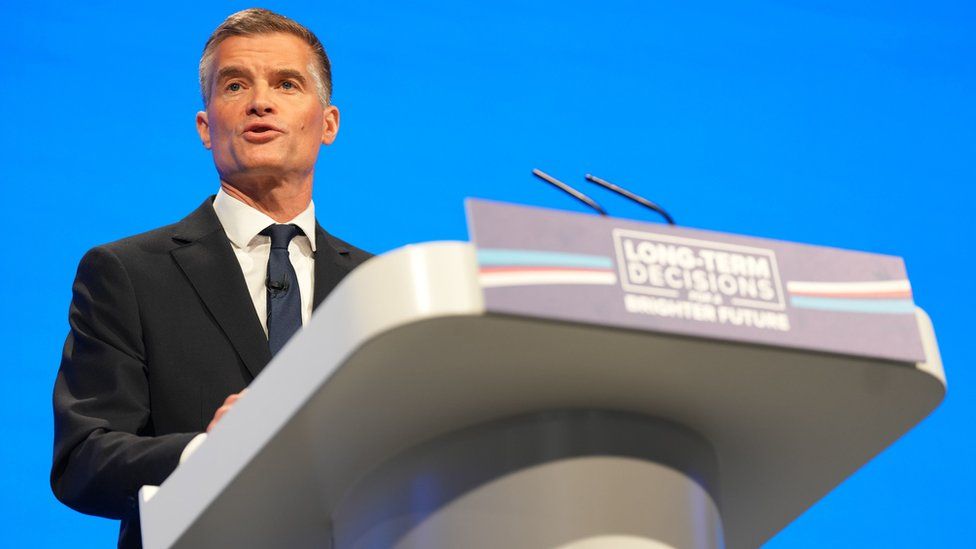15 minute cities: How they got caught in conspiracy theories
Published By admin

Conspiracy theories linking “15-minute cities” to sinister ploys to control people may once have been the preserve of fringe groups on social media, but have they now entered the mainstream of British politics?
Speaking at the Conservative Party conference on Monday, Transport Secretary Mark Harper said he was “calling time on the misuse of so-called ’15-minute cities'”.
Originally an urban planning concept, the “15-minute city” idea is aimed at providing people in cities with basic services within a quarter of an hour’s walk or bike ride of where they live.
“There’s nothing wrong with making sure people can walk or cycle to the shops or school,” said Mr Harper. “That’s traditional town planning.”
“What is sinister and what we shouldn’t tolerate is the idea that local councils can decide how often you go to the shops and that they ration who uses the roads and when, and they police it all with CCTV.”
But this is not an accurate characterisation of “15-minute cities”.
They do not give councils special powers to restrict people’s freedom of movement. And, while they are meant to reduce car traffic, they do not stop people from using other forms of transport.
Mr Harper did not respond to the BBC’s requests to clarify his comments, which appear to echo conspiracy theories about sinister plots linked to the concept of “15-minute cities”.
His speech follows government plans to “back drivers” by preventing councils from enforcing schemes that “aggressively restrict” where people drive.
The creator of “15-minute cities”, urban planner Carlos Moreno, issued a statement later on Monday calling on the government to reconsider its stance.
Content retrieved from: https://www.bbc.com/news/uk-politics-66990302.






